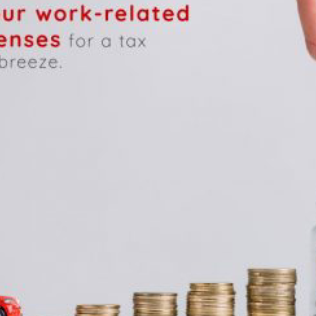Tax season is just around the corner and most people dread the thought of it because of filling out piles of paperwork and paying the government a solid chunk of their hard-earned money.
Did you know that you may be eligible for vehicle expenses tax deduction that could save you some money this year? If you have purchased a vehicle or use a vehicle for business purposes this past year, you can claim for a deduction under motor vehicle expenses. Here, we will help you understand the type of motor vehicle expense claims you can make when filing your tax returns in Canada, and the kind of documentation required to support them.
Qualifying for a deduction
When it comes to filing your returns in Canada and claiming for motor vehicle expenses, there are two ways to do it. The first one is related to the use of a vehicle (which you claim on line 9281 – Motor vehicle expenses), and the second one is related to the use of a vehicle after purchasing it (which you claim as Capital Cost Allowance).
To qualify for a tax deduction, you need to work in a location that is not your employer’s business or premises. For example, if you are a sales representative, you usually drive to different customer locations at least 4 days a week. You may have an office space, but you rarely work indoors because of attending numerous sales calls. The cost you incur travelling to visit your clients regularly may be an allowable vehicle expense. Another important fact is that commuting from your house to your workplace is not considered to be eligible for motor vehicle expenses.
Some employers reimburse travel costs or grant non-taxable allowances. So, you are eligible for a claim only if you are responsible for paying the cost incurred for your motor vehicle, and your employer is not. The Canada Revenue Agency wants to ensure that people are not double dipping in their vehicle expenses tax deduction. You can get a letter from your employer stating that you are required to use a vehicle for official purposes. This can be done in the Canada Revenue Agency Form T2200 (Declaration of Conditions of Employment).
Allowable Motor Vehicle Expenses
You can claim your motor vehicle expenses tax deduction if the following conditions are met:-
● The employee is usually required to work in different places or away from the employer’s place of business.
● Under the employment contract, all motor vehicle expenses are paid by the employee. No deductions are applicable for employers reimbursing the cost or the employee refusing allowance from the employer.
● The employee must not receive a non-taxable allowance for motor vehicle expenses. An allowance is non-taxable when it is solely based on a per-kilometre rate.
● The employee should keep a copy of Form T2200, Declaration of Conditions of Employment, which is completed and signed by the employer.
● The employee can deduct expenses related to fuel, insurance, maintenance/repairs, license and registration fees, the eligible interest paid on the loan used to buy the vehicle and eligible leasing costs.
● The employee uses the motor vehicle for personal and official use, then only a percentage of expenses can be deducted that is related to the income earned. A record must be kept of both the total kilometres that are driven and the kilometres that are driven to earn employment income. The Canada Revenue Agency considers driving, between home and work, as personal use.
● The employee uses more than one motor vehicle to earn employment income, and then each vehicle’s expenses should be calculated separately.
● The costs of parking and supplementary business insurance for a vehicle are exceptions and it can be claimed 100%.
Allowable Claims on Capital Cost Allowance
Capital Cost Allowance is a tax deduction in Canadian tax law that allows businesses to claim for the loss in value of capital assets due to obsolescence or wear and tear. This pertains to the amount you can claim for your motor vehicle expenses since it’s a depreciable asset.
How does this work?
● The cost paid for the vehicle is taken and reduced each year by a reasonable percentage.
● The percentage is determined and set out by the Canada Revenue Agency.
● When the cost of the taxes, delivery charges and other related expenses are included after purchasing the vehicle.
Maintain proper records
The Canada Revenue Agency recommends that you keep a logbook of all your motor vehicle expenses throughout the tax year. You always need evidence like receipts to back up your claims for business expenses. It may be tedious and easy to forget but maintaining a record is imperative, even if you are filing your returns with the help of a tax professional. Be aware that all tax-related receipts for the past 6 years should be carefully preserved, in case the Canada Revenue Agency wants to have a look at them.
